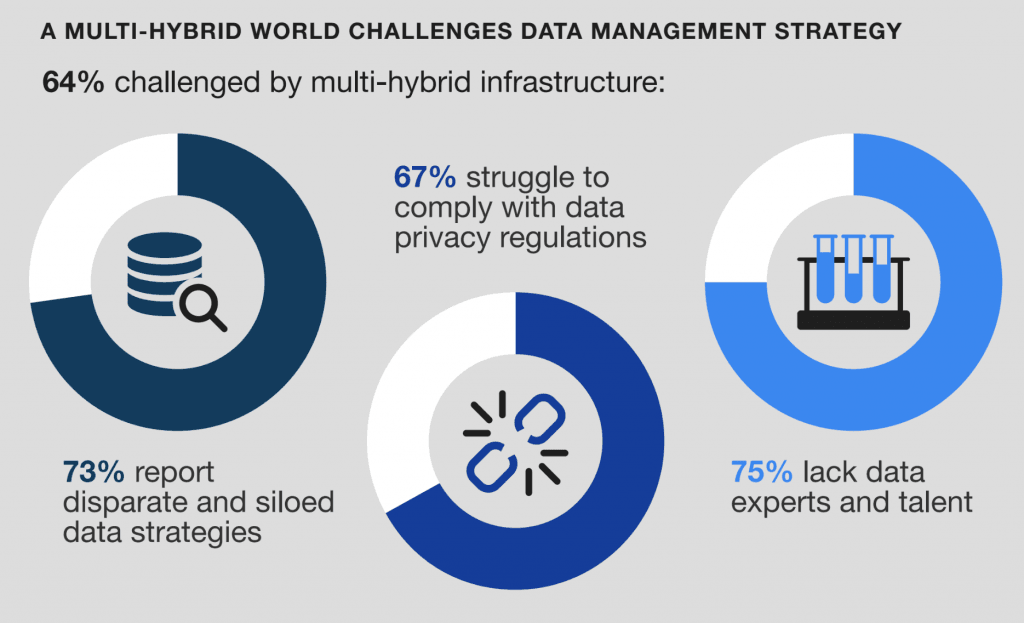Over-focusing on security and governance issues was potentially hiding the opportunities offered by multi- and hybrid- cloud infrastructure: study
With a view that business are experiencing difficulties leverage data as a key way to create more value due to the disparate and siloed data strategies used, Oracle commissioned a study to emphasize the essential role of multi-hybrid cloud platforms to collate the mass of information that enables analysis of insights and inform business-critical decisions.
The study of technology and business decision makers across the Asia Pacific, Europe and Middle-east markets and conducted by Forester Consulting, explains that 82% of the 670 respondents recognized that investing in the right data management strategy will lead to better business outcomes. But 73% admitted that they have disparate and siloed data strategies that are stopping them from providing business stakeholders with the data they need.
Han Chung Heng, Senior Vice President, Oracle Systems, JAPAC and EMEA said: “Organizations in the Asia Pacific region are making strong progress in terms of unifying data sources and getting on top of data security and governance requirements. But the study also reveals that their intense focus on these areas may be holding them back from realizing some of the benefits of multi-hybrid cloud they need right now around providing access to unique capabilities and supporting diversification. In fact, only a third of companies in JAPAC appear focused on this aspect of data management as compared to over two thirds in Europe. They need to make sense of living in a multi hybrid-cloud environment as soon as possible, or risk being left behind.”
As the study shows, with increased complexity, compounded by the trend of working across different IT environments, 64% of respondents were grappling with the challenge of managing a multi-hybrid infrastructure. So, it is not a surprise if 70% of organizations consider the need to simplify their IT processes as a high priority.

One issue highlighted by the study is: concerns and focus around data security and data governance are limiting businesses from gaining key benefits. According to the research, the adoption of multi-cloud data hosting is driven by the need for diversification as well as access to unique capabilities: 6 out of 10 respondents mentioned “accessing specific technology or capabilities” as drivers for their multi-cloud strategy.
However, even though 83% of firms believe that data security requirements are of high or critical priority as they advance along their data management roadmap, half of respondents said they currently lack the ability to adequately ensure data protection and comply with security regulations.
Given these challenges, the study recommends that organizations look to their technology partners for a unified data platform that will provide end-to-end visibility across their hybrid environments, along with the security foundations that are flexible enough to meet current and future data complexities.
KEY FINDINGS
- 82% wanted their data strategy to lead to a better understanding of the customer and a better customer experience.
- 73% of organizations reported disparate and siloed data strategies that stopped them from achieving this goal.
- 36% of the data was still hosted on-premise, 19% was hosted on a public cloud, and 18% on private cloud.
- The nature of the data collected by these organizations had considerably changed—with 31% being tabular/structured and the remainder being non-tabular/semi structured or unstructured data. Of the latter, 18% were text data and the rest evenly distributed across images/video, machine generated data, streaming data, and others.
- Public sector and retail showed low data strategy maturity: 34% of public sector and healthcare organizations had an incomplete data strategy.
